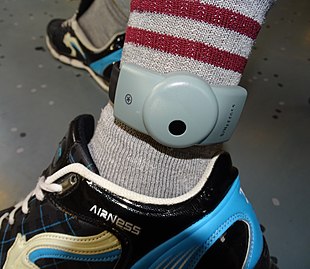Sex offender monitoring in North Carolina
Sex offender monitoring is a part of the process for some individuals required to register with the NC sex offender registry. In North Carolina, like most other jurisdictions, conviction of certain crimes require registration on the sex offender list. This topic is discussed in our blogs sex offender registry part 1 and part 2. In addition to the registration requirement, some convictions and some additional circumstances require that a convicted sex offender submit himself to satellite-based monitoring. We will discuss that in this blog.
This is for informational purposes only and is no substitute for consulting with a criminal defense lawyer. Sex crimes can be very complicated and have serious consequences so if you or a loved one has been charged with a sex crime, you should contact a criminal defense lawyer immediately.
Who must submit themselves to satellite-based monitoring?
According to North Carolina General Statute 14-208.40, the program is designed to monitor three types of offenders:
- Anyone who is a convicted of a sex offense that requires registration and is classified as a violent sexual predator, is a recidivist, or has committed an aggravated offense under North Carolina General Statute 14-208.6. or;
- Anyone who is convicted of a sex offense that requires registration, and involved physical, mental, or sexual abuse of a minor, and based on the adult corrections or juvenile justice risk program requires the highest possible level of supervision and monitoring or;
- Anyone who is convicted of statutory rape of a child by an adult under North Carolina General Statutes 14-27.23 or anyone convicted of statutory sexual offense of a child by an adult under North Carolina General Statute 14-27.28.
Determination of whether or not satellite-based monitoring is required
Due to a defendant’s right of due process, upon conviction he or she is not automatically subject to satellite-based monitoring.
- The department of adult corrections or the department of juvenile justice must first determine that one of the above-mentioned criteria applies to the convicted person.
- The prosecutor must give notice to the offender, with a hearing to take place no sooner than 15 days after the offender has received such notice.
- At this hearing, the offender can be represented by a criminal defense attorney. If he is found to be indigent, the Court will appoint him an attorney.
Enrollment requirements
If enrollment is imposed by the court, enrollment must be done by the offender immediately upon release from detention or immediately after sentencing if there was no sentence of imprisonment assessed.
Required length of enrollment
Typically, enrollment is for the lifetime of the offender (sometimes 30 years for less serious convictions), however under North Carolina General Statute 14-208.43.
- The offender would have to submit a written request to the Post-Release Supervision and Parole commission
- That can be made no sooner than one year after completion of prison sentence and after completion of any probation or supervised release term
- The commission may terminate if they find that there were no additional convictions, the offender performed all tasks involved with probation, and the offender is no longer a threat to the public.
At Gilles Law, we handle criminal defense in North Carolina, criminal defense in South Carolina, and federal criminal defense. If you need a criminal defense lawyer in Charlotte or the surrounding area contact us.
